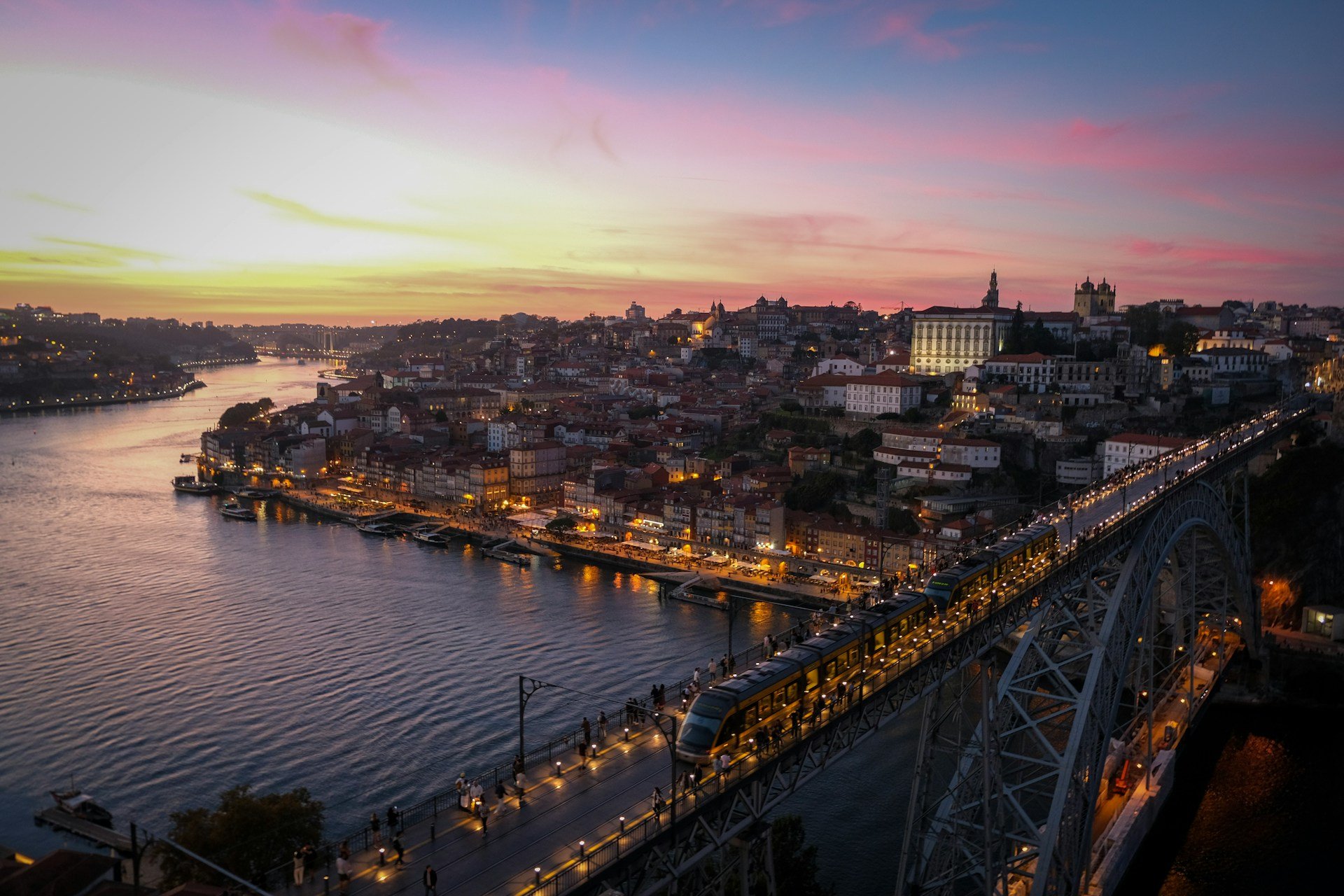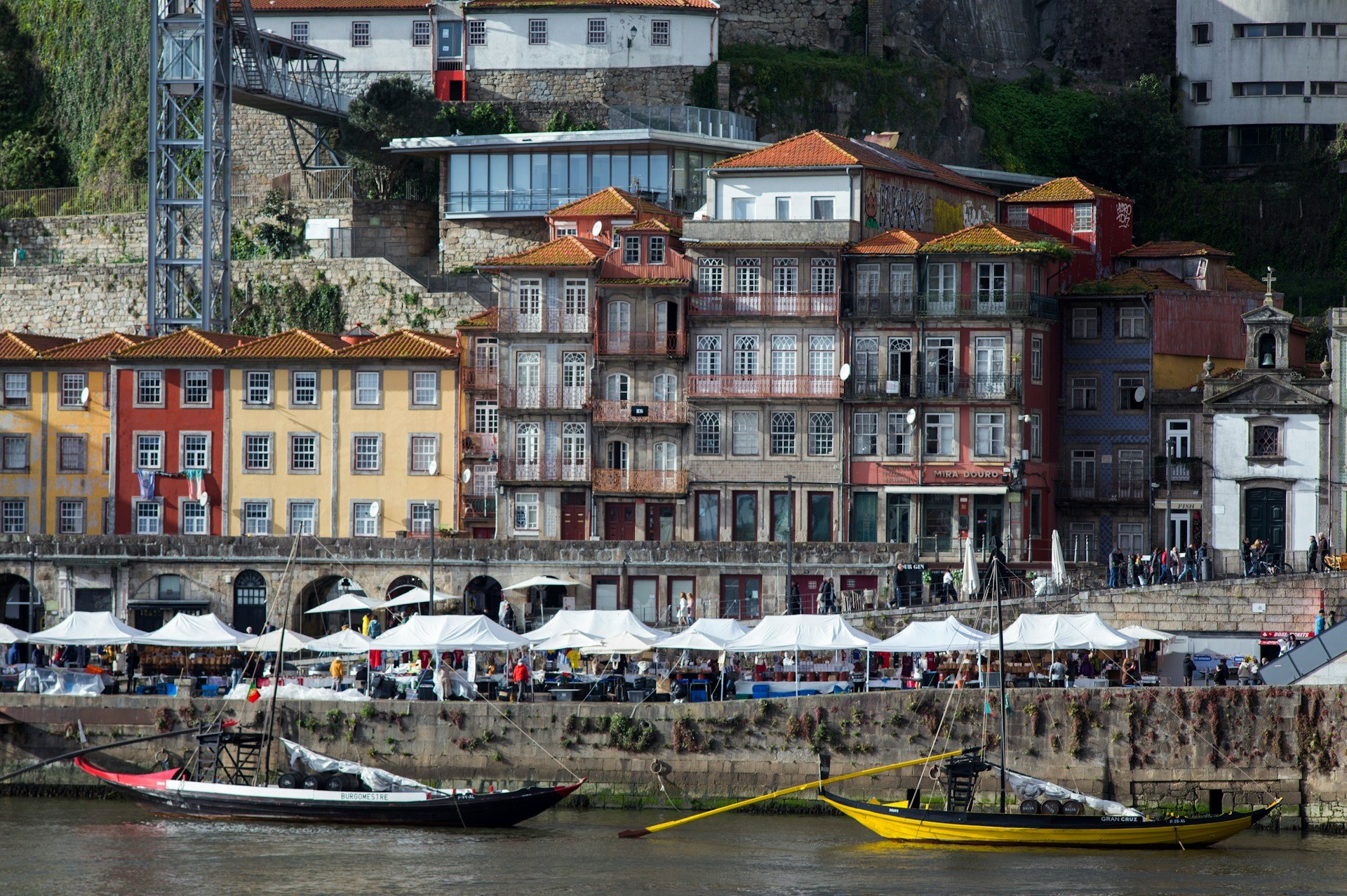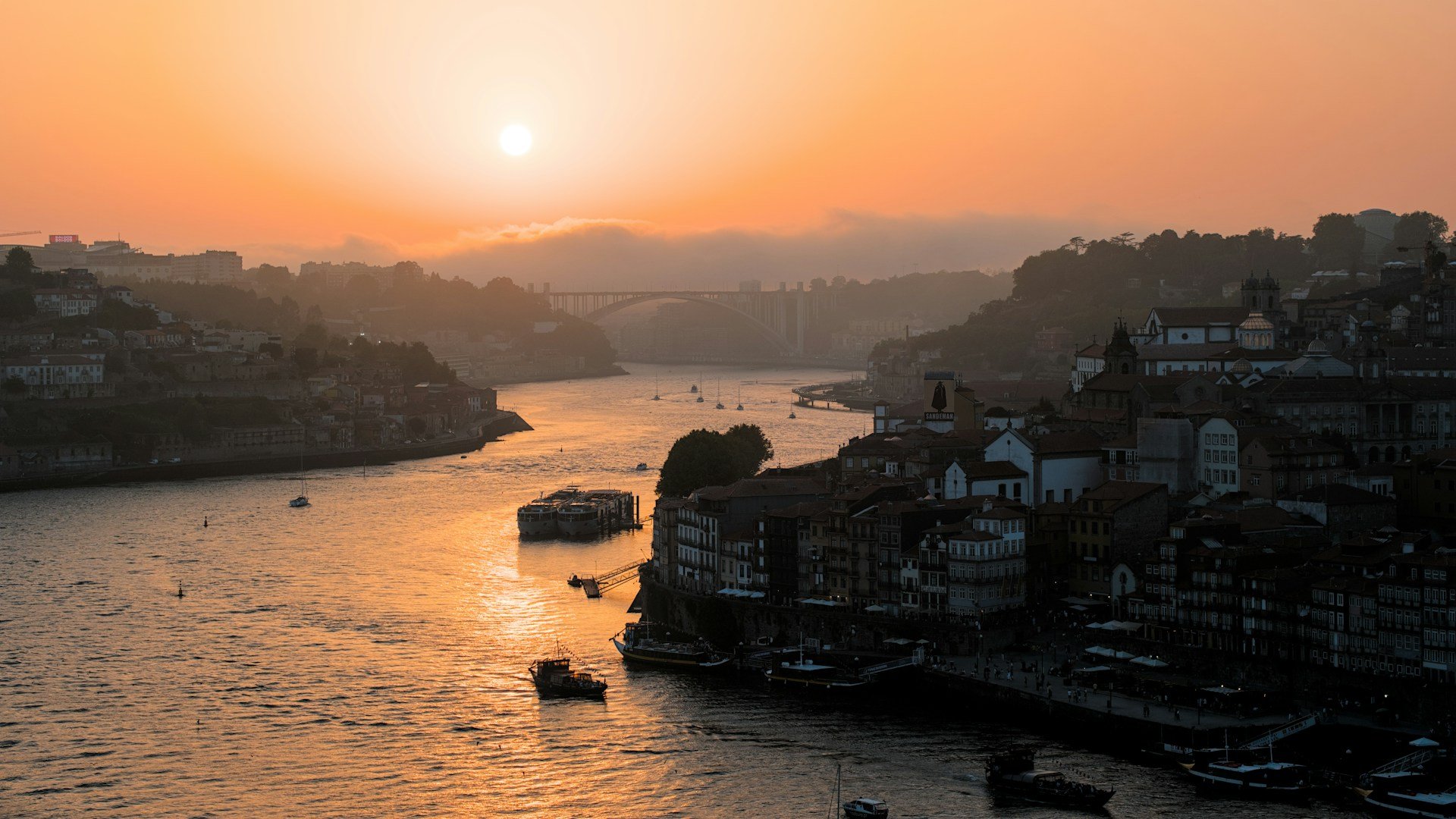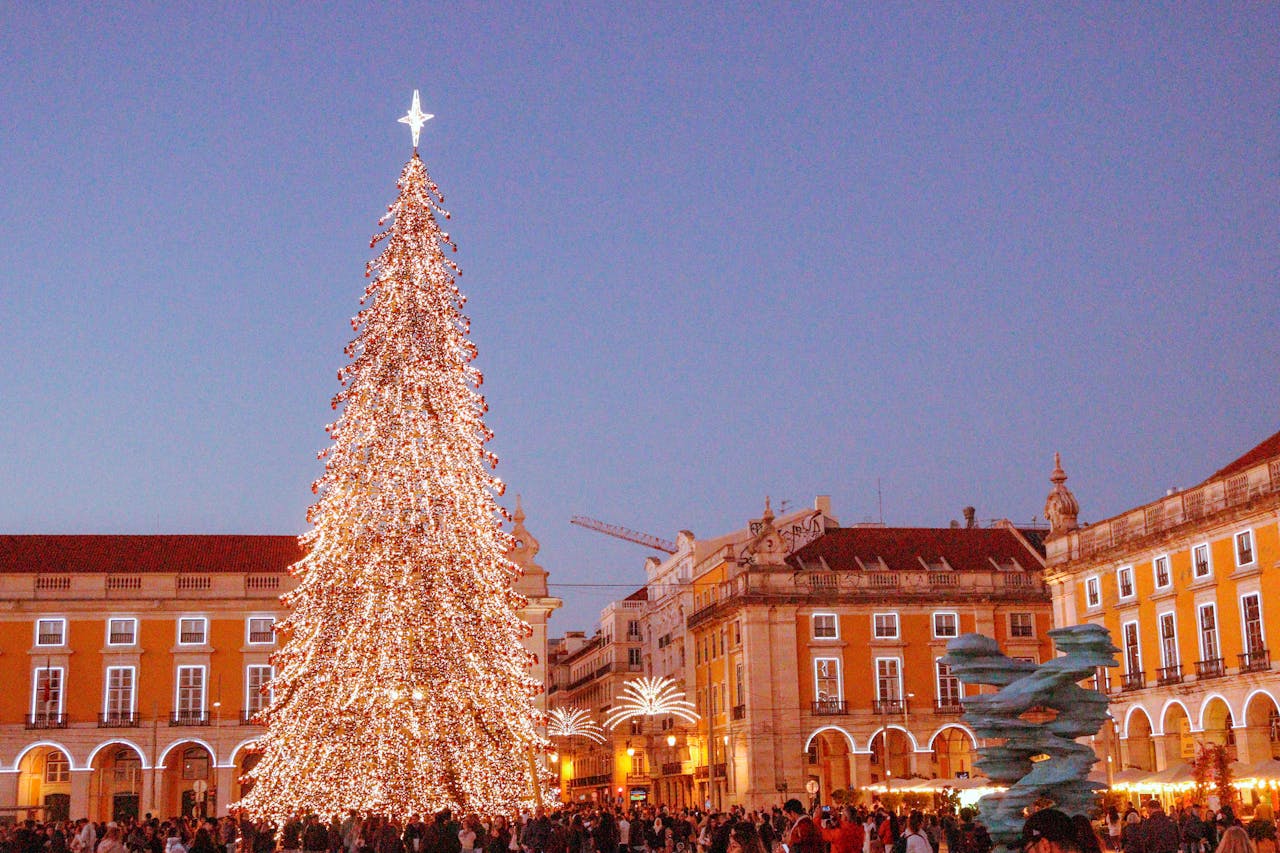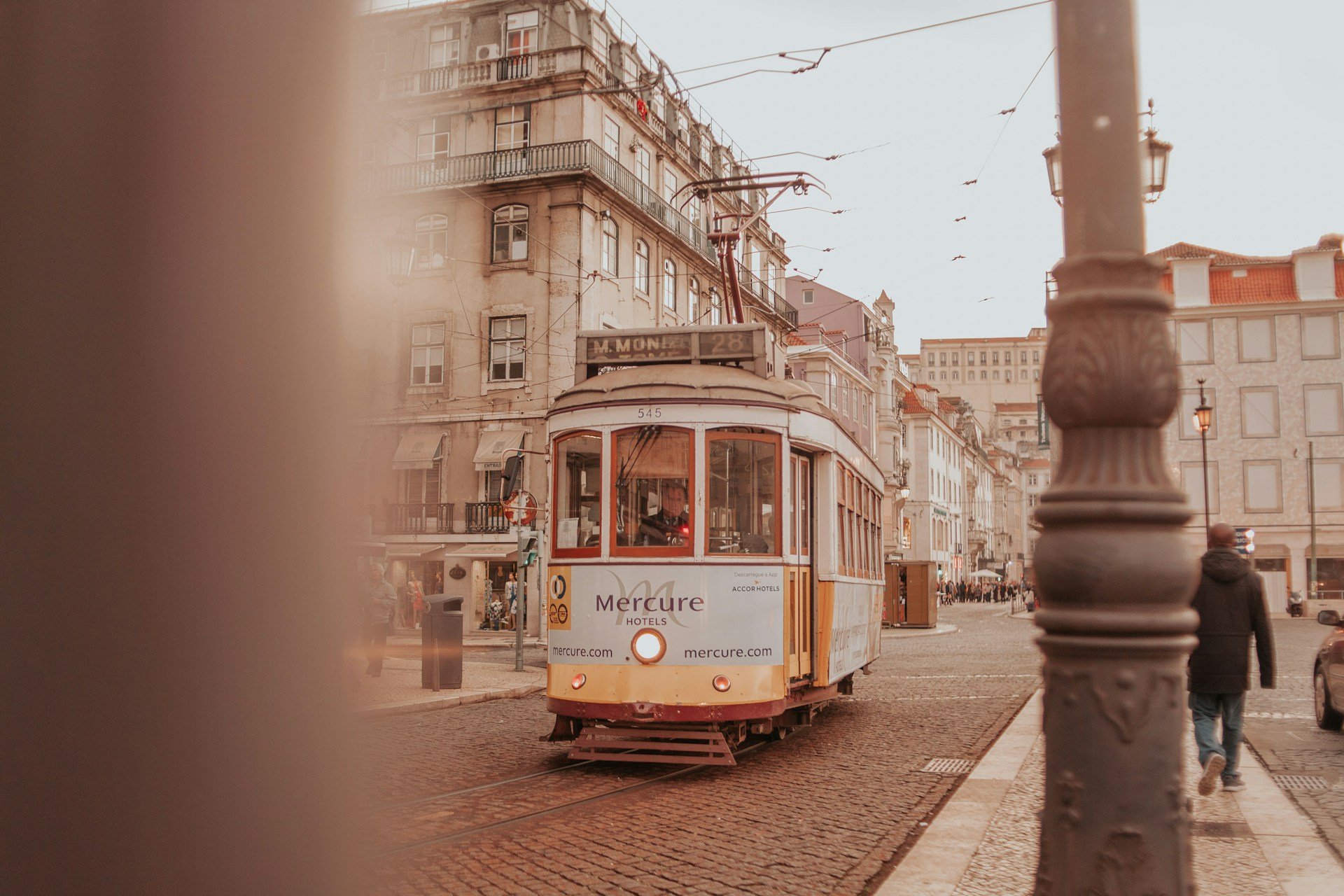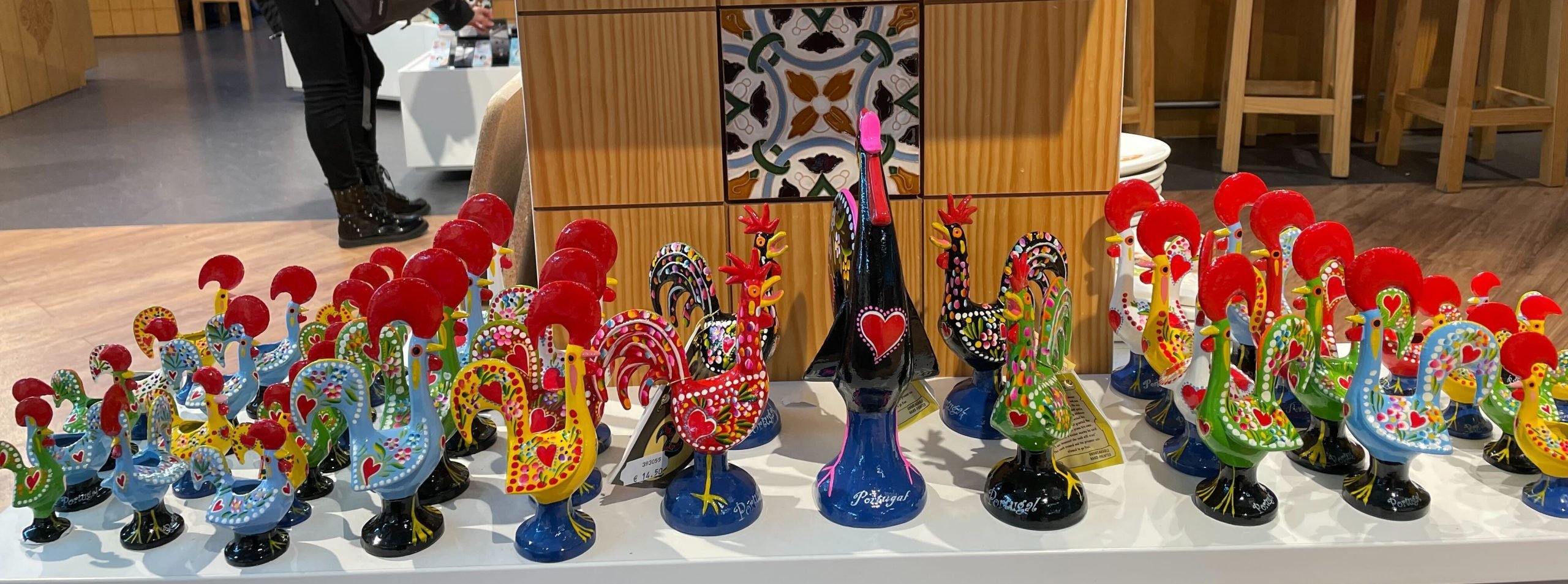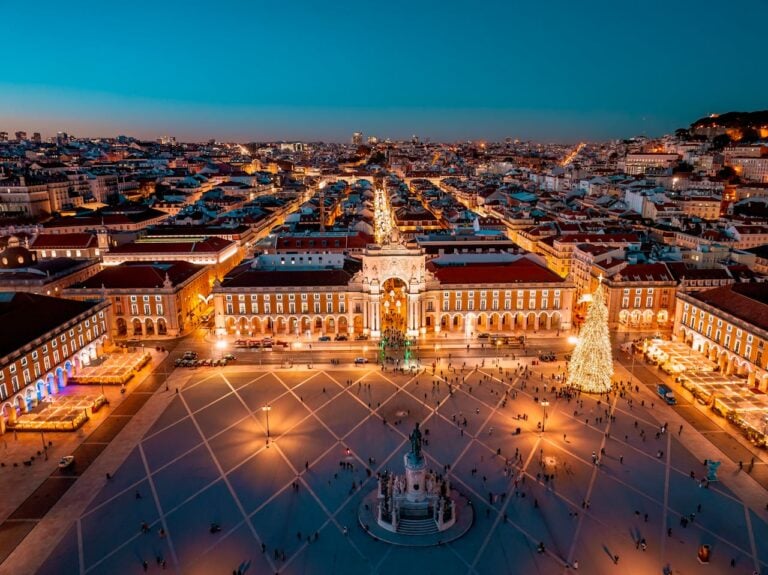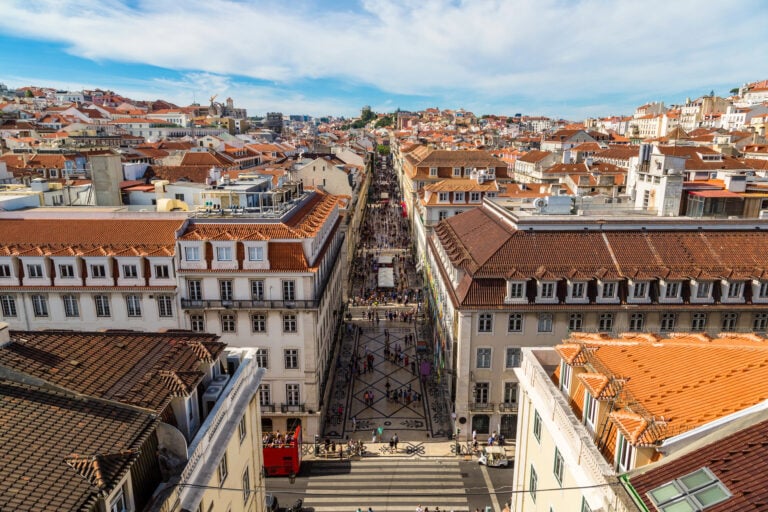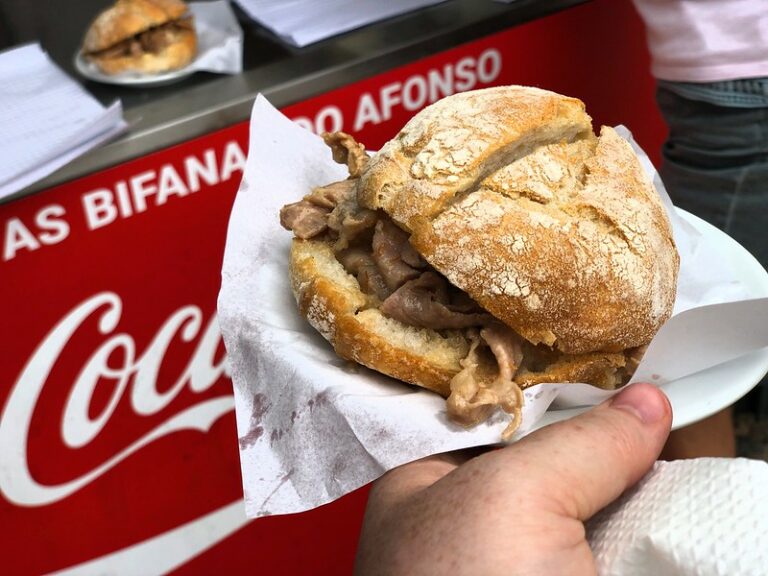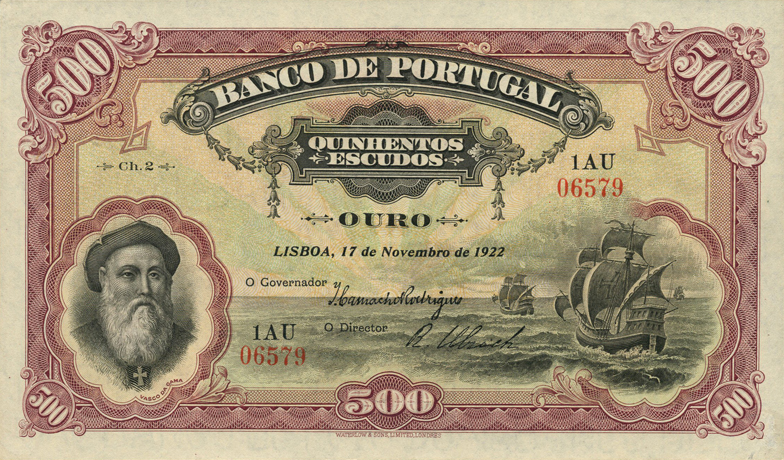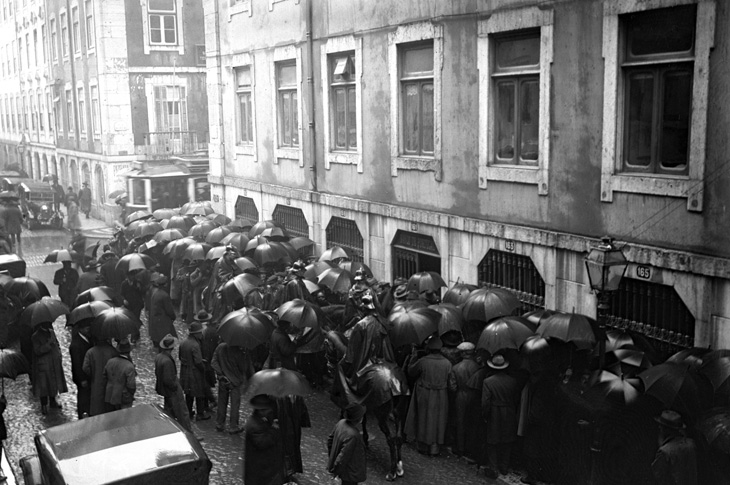In October 2022, Portugal made it an even more exciting time to be a digital nomad with the launch of the Portugal Digital Nomad visa! Offering the first digital nomad visa of its kind in Europe, remote workers can apply for a one-year temporary stay visa or a residency permit that can be renewed for up to five years. Applicants need to make at least €3,480 per month. This is four times the minimum wage in Portugal. For dependents, you need to add 50% of the minimum wage for a spouse or parent, and for each child, totaling a minimum of €5,220 per month for an applicant and their spouse, and €6,264 for an applicant, spouse, and one child.
(This post has been updated in November 2025)
Prior to this visa, there was no visa directed to remote workers wanting to reside in Portugal without a large investment through the Portugal Golden Visa or proof of passive income through the Portugal D7 Visa.
You can apply for the Portuguese Digital Nomad Visa at the nearest Portuguese consulate in your country of citizenship or permanent residence. Let’s take a look at everything you need to know about the Portugal Digital Nomad visa.
Portugal Digital Nomad Visa General Requirements
The main requirement for Portugal’s digital nomad visa is your salary. You must have made at least 4 times Portugal’s minimum wage, €3,480 per month, in the last three months prior to your application. Please note that this is a gross income amount not net after tax.
Only those from outside the EU and EEA can apply. You must also be employed by a company outside of Portugal or self-employed. These will naturally be checked officially through tax residency documents, proof of employment, and proof of income for the last three months.
You can apply for this digital nomad visa at a Portuguese Consulate in your home country or at the Agency for Integration, Migration, and Asylum, also known as AIMA.
Portugal Digital Nomad Visa: Two Types
There are two types of Digital Nomad Visas in Portugal. You can apply for a Temporary Stay Visa or a Residence Visa.
The Digital Nomad Temporary Stay Visa is the easiest to apply for and allows you to stay for up to 1 year in Portugal, with the possibility of renewal.
You are allowed to work as a freelancer or online business owner in Portugal for this period, as well as travel freely in and out of Portugal.
Digital Nomad Residence Visa
On the other hand, you can also apply for the Digital Nomad Residence Visa if you are looking for a longer stay in Portugal. This is the perfect visa if you seek to get residence or start the path toward Portuguese citizenship.
For the Digital Nomad Residence visa, along with the income requirement of €3,480 per month, you will need the following:
- NIF and Portuguese bank account
- Proof of tax residence (12 months)
- Employment contract from outside Portugal or freelancer contract
- Payslips
Digital Nomad Residence Visa: How does the application process work?
There are two separate stages for the Portuguese Digital Nomad Visa. First, you will submit your application at your nearest consulate, either in your country of citizenship or permanent residence.
If your application is successful, the embassy will grant you a double-entry visa that will be valid for four months. With this visa, you will enter Portugal and start completing the second stage. The second stage is the residency permit stage where you will then apply for your residency permit at AIMA.
Portuguese Embassies in the US, UK and Canada
Who can get a Portugal Digital Nomad Visa?
Those outside the EU and EEA can apply for the Portugal Digital Nomad Visa. You must also have an income that is 4x the Portuguese minimum wage, so €3,480 per month. Moreover, you need to be employed by a company outside of Portugal or be self-employed.
Other Portugal Visas
Portugal D7 Visa
The D7 Visa is also known as the Retirement or Passive Income Visa but is also suitable for remote workers and digital nomads. The Portugal D7 Visa was introduced in 2007 and requires no investment. The income required is also a lot more affordable.
This visa is for non-EU/EEA/Swiss citizens who want residence in Portugal and have a reasonable passive income. This income can come from real estate, a retirement pension, a salary, etc.
The minimum passive income required is €10,440 per year for the main applicant. For a spouse, you must add 50% to this (€5,220) and for a dependent child, you must add 30% to this (€3,132). Therefore, for a couple with one child, you would need around €18,792 a year to be eligible for the D7 Visa.
For this visa, you must spend at least 16 months in Portugal during the first 2 years.
Portugal D2 Visa
The Portugal D2 Visa could be the right path to take if you are an entrepreneur, freelancer, or independent service provider from outside the EU/EEA/Switzerland looking to reside in Portugal.
You might be eligible for a D2 Visa if you want to start a business or startup in Portugal, transfer your existing one to Portugal, as well as invest in a business in Portugal.
This visa is catered to small and medium-sized businesses to raise foreign investment to develop the Portuguese economy.
To apply, you must put together a viable business plan that will be evaluated in terms of its economic, technological, and cultural impact. You can set up any business, from a restaurant to a tech startup.
In terms of cost, you must invest in the company’s share capital, which immigration firms advise should be at least €5,000. Note that this is more of a practical recommendation and not a legal requirement. You must also show that you have the financial ability to sustain yourself while living in Portugal.
This visa allows for family reunification, where your family members are granted the same residency rights as you. Like the D7 Visa and Golden Visa, you can apply for permanent resident and citizenship after 5 years. To be eligible for permanent residence, you must spend at least 6 consecutive months in Portugal within those 5 years.



